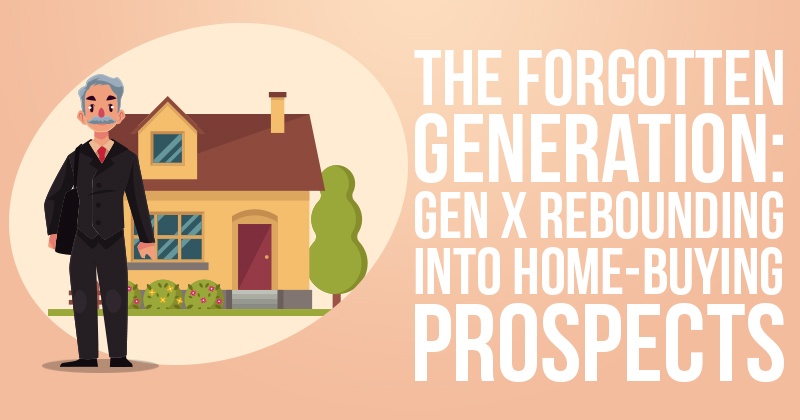“Hey, bud, let’s party!”
That one declaration by surfer/stoner Jeff Spicoli from the 1982 hit movie “Fast Times at Ridgemont High” completely encapsulates Generation X.
Like, totally.
Considered to be slackers by the Baby Boomers and later out of touch by Millennials, Gen Xers grew up in uncertain times: nuclear war tensions between the U.S. and Russia, Reaganomics, the stock market crash of 1987, mass unemployment from American jobs being relocated to foreign countries, an escalation of the War on Drugs, break dancing, Parachute Pants, mullets and, of course, Cabbage Patch Dolls.
Born between 1965 and 1982, members of Generation X are low on numbers and high on fortitude. With the national divorce rate hitting its zenith in the late 1970s and early 1980s, many kids of this time grew up in broken homes, learned to live in a new analog world and then discovered the digital age during the early stages of their careers. Some readily adapted to the emerging technology. Some were slow to embrace the changes. Others partied like it was 1999.
Emerging from the haze, Gen Xers are now significant players in the real estate market. They may have been hit hard by the Great Recession and the national housing demolition of 2009, but they are making a comeback.
To the max.
According to MetLife, Gen X enjoys a home ownership rate of 82 percent. While Pew Research lists Gen Xers at approximately 65 million, Baby Boomers account for 77 million, and Millennials 83 million.
Numbers can lie, or at least be deceiving.
Members of Gen X are in the housing market and should not be overlooked. They are in the prime of their money-making years and by average annually bank approximately $10,000 more than Baby Boomers and $20,000 more than Millennials.
If you are serious about increasing sales in 2018 and not getting burned, begin realigning your marketing approach to include the “forgotten generation.” Otherwise, you might be told to “eat my shorts.”
Many Gen Xers are in a position to trade up from smaller homes. Others are finding their mortgage struggles from a decade ago are diminishing. Many are eager to move out of an apartment or rental house and back into a home.
Rediscovering Generation X
Gen Xers are a diverse group. According to Forrester Research, 62 percent still read newspapers and 48 percent listen to the radio. In a survey by Millward Brown Digital, 75 percent utilize social media and 60 percent have a smartphone.
If you wonder how you're going to reach this group of individuals, it shouldn't be a problem. They respond to all types of communication. They open and read their mail. They search and click emails. They watch videos. They are on Facebook. Heck, they were among the first to surf the web.
While it may take a few days for a letter to reach potential clients, snail mail remains one of the most effective ways to advertise. Remember, a high percentage of people of this era still communicate with traditional, hand-written letters.
Email, on the other hand, could mean instant success in prospecting for clients. With so many Gen Xers online, compiling a mailing list would be a wise tactic to open up communication.
Video marketing can be creative and personal and plays directly into this generation’s DNA. If not named Generation X, this group could have been coined the “MTV Generation.”
Personalized real estate advertising videos could prompt prospects to reply. When they do, you got ‘em. If the video is on-mark, there's a high probability it also will be shared on social media, possibly creating a higher demand for your services.
Digital media is an advertising source that shouldn't be ignored on your 2018 marketing budget. Approximately eight out of 10 Gen Xers have a Facebook account, and a majority share personal information daily, if not hourly, on one social media platform or another, according to published reports.
A video could separate your pitch from your competition’s, and if it’s effectively produced, the personal touch will go a long way to attracting new clients.
It’s a stereotype, but Gen X has a reputation for being cynical and wary of authority figures. Old-school advertising strategies go a long way, if they're authentic in their presentations.
Think Spuds MacKenzie. Don’t try to trick or maneuver around the ad’s message. It’s another stereotype, but individuals of this era retain intense family values and want to be sure they can put their trust in you.
The tone of your marketing message should be angled toward gaining their trust and creating product intrigue. Do not gag Gen Xers with a spoon by telling them how to feel or what to do.
Get gnarly with Gen X
A study conducted by the National Association of REALTORS’ Home Buyer and Generational Trends noted that generation home-buying will rise to 28 percent by the end of 2017. That’s an increase of 2%. Gen X will continue to play a big role over the next few years.
In home-buying trends, Gen Xers prefer to move out of the suburbs and into refurbished urban areas. They want an assortment of bedrooms with a home office/man cave, living and dining areas, a kitchen and plenty of storage. As the group with the largest percentage of kids living at home, they want to live near quality school districts.
As for the new homebuyers of this era, they may be making more money than other generations, but they are also aware that upon retirement, they likely will not be better off financially than the Baby Boomers. With this in mind, low down payment loans could prove to be a key sellers’ strategy.
The Gen Xers are plugged in. You should be too.
The best way to stay fresh on all the online chatter is the Mobile Real Estate Marketer.
With unlimited phone minutes, text messaging, pre-recorded audio messaging features and websites, you will be able to keep pace with Gen Xers on social media. By staying plugged in, you’ll see your leads grow.
When your leads grow, your sales will follow suit.
And when you close the big deal, you can declare:
“Hey, bud, let’s party!”
![]() Joe Nickelson is a real estate professional dedicated to helping home buyers and sellers achieve their dreams of owning property, and helping real estate agents stop using the sometimes-vicious tactics that weigh on their consciences. He believes that the Smart Agents books will, quite literally, change people’s lives for the better. Check out his full bio here!
Joe Nickelson is a real estate professional dedicated to helping home buyers and sellers achieve their dreams of owning property, and helping real estate agents stop using the sometimes-vicious tactics that weigh on their consciences. He believes that the Smart Agents books will, quite literally, change people’s lives for the better. Check out his full bio here!





